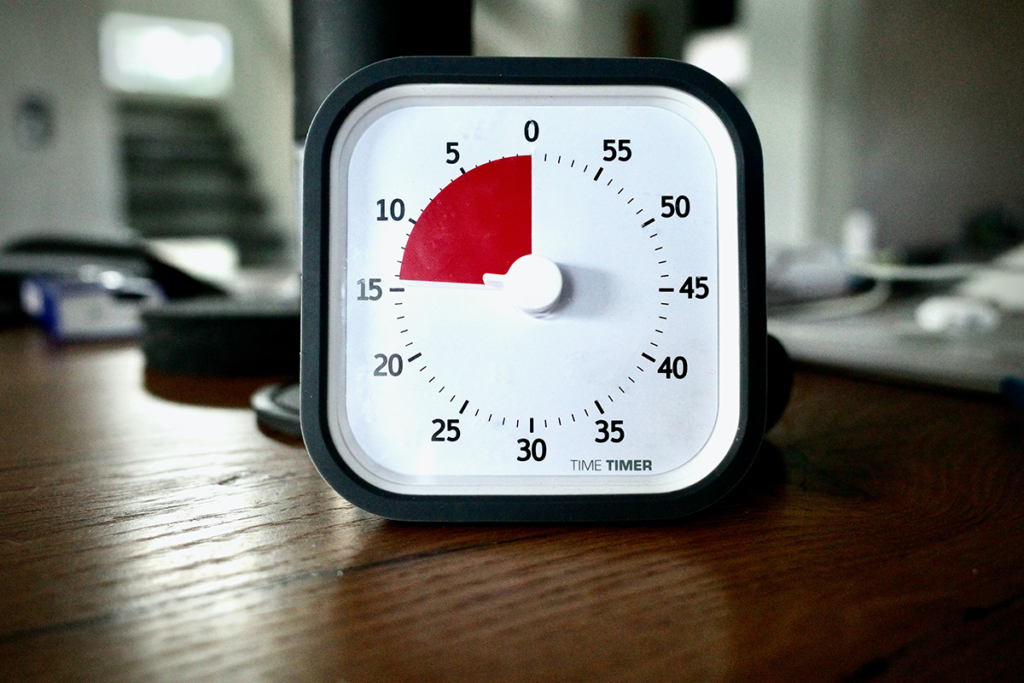You’ve taken the SAT and the results aren’t what you hoped – don’t worry! You aren’t alone. Most students take the SAT more than once, and those who do generally improve their scores. So if you’re trying to recover from a score that won’t help you launch your educational career, we have a few time-trusted tips to help.
Remember: You’ve got this. While the SAT has a lot to do with what you know, it also involves proper preparation. When students take proactive steps to make sure they’re setting off on the right foot, they’re setting themselves up for better SAT scores. After all, this is the first step in your future education and career!
Take some time to boost your chances of success with 10 of our best tips to improve SAT scores.

1. Set your target score
Test taking is a skill, and it takes time to build it. Don’t beat yourself up for missing a few points, but set realistic expectations for your improvement. It starts with understanding your current score, where you went wrong, what you missed and the areas you can focus on. Consider a verification service to dig into your score and help you plan your course of action.
Then it comes down to making a goal. A target score might depend on the college you’re applying to or maybe it’ll be based on your own personal definition of success. Either way, consider who will be seeing your score. Balance the abilities you have with the standards colleges set – and research your school’s SAT range to be as informed as possible.
This doesn’t always mean aim for the top 1%. It means setting clear and realistic expectations to help shape guidelines for your studying. Test taking can be daunting, but understanding the percentile you’re aiming for will help you plan study habits, know the learning you have yet to do, and make everything easier.

2. Build a study routine
Armed with a set goal of how much to improve SAT scores, students should get to work. Scheduling is your best friend. If you struggle with time management, consider physically allotting prep time in your calendar. Tell your family and friends when you’ll be working so they can support you in it.
Start small, and build up. You don’t want to overwhelm yourself too early, and a better score is a marathon, not a sprint. With that in mind: start early. Properly preparing to take the SAT requires putting plenty of study time between yourself and the test date so you don’t cram your learning. Remember that you’re building long-term skills, and a study routine will help cement the knowledge you need for your dream score goal.
Study routines will look different for everyone. You’re the one who knows if you work better in the morning or the evening, or if you prefer studying alone at home or in a library. If you’re not sure, then this is an opportunity to build long-term study habits and get to know yourself. A feasible and rigorous study routine is a life skill, so set yourself up for future success by perfecting it now!
3. Use official SAT practice tests
Use the tools available to you – they’ll help you in the pursuit of your goals. No one expects you to learn every possible question in advance, but knowing your weaknesses in test taking and subject material will help your score.
Practice tests are a great way to understand your test-taking habits and identify areas for improvement. Practice the official SAT questions online and on paper to figure out where you should spend more time.
We recommend taking the time to take full practice tests during your preparation period, but don’t rely only on them. Practice tests are wonderful opportunities to gauge your abilities and practice in a testing environment, but they aren’t enough alone to improve your SAT score. Go over what you don’t know between practice tests – you might even see your score increase yourself!
Taking official SAT practice tests can also benefit your general test taking awareness. So if you struggle with timing, or if you are using up a lot of your time on math questions or reading passages, you’ll want to know before your next official SAT date.
4. Time yourself
When you’re taking an online test, or even if you’re just working through a question, time it. Sometimes an unsatisfactory score comes down to running out of time. If you get flustered easily when test taking, or just like to be thorough, timing yourself can help you plan strategies. Most students use time-saving tips to get through their tests.
There are lots of work-arounds for slower test takers. Moving through the SAT not only quickly but efficiently is the key to getting through the exam with confidence. Have you heard the phrase “work smarter not harder?” In this case you can do both. Memorizing the directions, skipping difficult questions and working through the booklet with an awareness of your own timing can help improve SAT scores.

5. Use your test day calculator while studying
Be familiar with your tools! It may seem obvious, but the last thing you want is to be scrambling with an unfamiliar calculator in the middle of your test. That can eat up time and make your testing experience much more stressful. Use the calculator you’ll bring to your testing site when you’re practicing.
Being as comfortable and sure of yourself as possible will make the SAT easier. When your fingers are flying over your calculator buttons on test day, you’ll be glad you did. If you don’t have a good calculator and are putting off buying one, invest in a calculator or borrow one from a friend. Improve SAT scores by setting yourself up for success with tools that can help you.
6. Brush up on the basics for the Writing section
No matter how good a test-taker you might be, no one wants to walk into the SAT blind to what’s coming. For that reason it’s highly recommended that students brush up on the basics! Knowing the format and style of what you’ll be asked can decrease time, smooth the process and increase your chances of getting the question right.
The Writing section is designed to test your grammar rules understanding and reading comprehension. Take some time to familiarize yourself with the kinds of questions that might be asked. It can help!
Looking for more SAT help? Check Out Test Geek’s Free SAT Study Guide.
With the new SAT redesign, the Writing questions will be based on four passages, and will balance questions on style and grammar. This means wordiness, redundancy and word choice, among other topics, will be important to know more about.
You may be asked to select the correct word in context, or correctly apply commas. If this feels overwhelming, take a deep breath! Knowing what might be coming at you in this section will help you feel more comfortable in your abilities. And it means you won’t be blindsided when certain questions crop up in your booklet.
7. Read, read, read!
Build up on your reading comprehension for the Reading and Writing sections by practicing your reading skills. Concentrating for hours may be a skill that takes some time to perfect. Start by reading small and time yourself. And no, you don’t have to pay attention to every comma or grammar rule. You can improve SAT scores by increasing comprehension and taking something away from what you’ve read.
What you read during your SAT test might be material you like and are familiar with, or it might be completely new. You might even learn something! The point is, don’t just study by reading material you’re comfortable with. Take it as an opportunity to expand your knowledge and understanding. Getting in the practice of reading will make reading on test days smoother.
8. Brush up on the basics for the Math section
Just as with the Writing section, know your foundation. You shouldn’t be stumbling into the questions without an awareness of what might be asked of you. Instead, do the research and understand how to improve SAT scores with the knowledge you already have.
The Math section won’t be asking you anything you can’t figure out, it’s designed that way on purpose. It contains material for students all around the country, so it won’t require you to regurgitate high level math theories. Know the kinds of questions the SAT might ask, and gather the concepts you notice yourself using when practicing.
It’s never a bad idea when prepping for the Math section to refresh or rebuild the base of your math skills. You might need to look back at notes you’ve taken throughout school, or spend some time on Khan Academy, but it will pay off.
You shouldn’t be charging into a stressful test taking environment without the basics. So learn them! Or re-learn them. Understand your mathematical mistakes and try not to get discouraged when you make them. The more mistakes you make when practicing, the best chance you’ll have to perfect them before arriving at your testing location.

9. Show your work
It’s a basic one, but it’s important. You’ve probably heard some variation of “show your work” since you could write down a math equation. Well, not to be repetitive, but we recommend it too!
Here’s why. In stressful environments, your brain can skip a few steps. You might think you know where you’re going, and end up at an answer that seems right but isn’t. When you walk yourself through the equation or problem in question, you’re giving yourself the opportunity to spot mistakes.
This is also helpful when you’re checking your work. If you do have the time to go back on testing day, you’ll know the steps you took to get to your answer. Instead of wasting precious time replicating the question to find the same result, you’ll know what got you to the answer you’re looking for.
Show your work. It might just help to improve SAT scores!
10. Work with an SAT tutor
An SAT tutor may be the answer for any number of reasons. Perhaps you work better with a partner or need an external force to help you motivate. Sometimes students can get too caught up in their work and struggle to pull themselves away enough to see areas that need more attention. This is where an SAT tutor can help.
SAT tutors are worth it. They help you identify weaknesses and common mistakes (and how to fix them). Tutors can help motivate you and keep you on a schedule that may be hard to maintain on your own.
What would 200 EXTRA POINTS do for you? Boost Your SAT Score with Test Geek SAT prep.
While tutors aren’t always the solution to a perfect score, they can help you work towards your goal. Needing more direction and help in SAT preparation is completely normal. A tutor can help you dissect your practice tests, walk you through issues you may be experiencing and create a plan so you can find success.
If you’re considering using a tutor, you’ll want the best possible. Not all tutors are created equal, so make sure you vet your prospective learning partner before agreeing to work with them. You’ll want a tutor who is respectful of your educational needs, who can push you to the score you want and, perhaps most importantly, tested in the top percentiles when they took the SAT.

Find SAT Success with Test Geek Today
Following these ten easy tips can help to improve SAT scores. You’ve got the brains, the know-how and the drive. Now all you need is to put it to good use and get the score you deserve!
Testing for your future is important. The SAT might just be a day out of your life, but it can affect your school decision, future education, and career. Give this test the attention it deserves. Practice, practice, practice. Know your personal pitfalls and ensure that, come testing day, you are the best prepared you can possibly be.










Comments